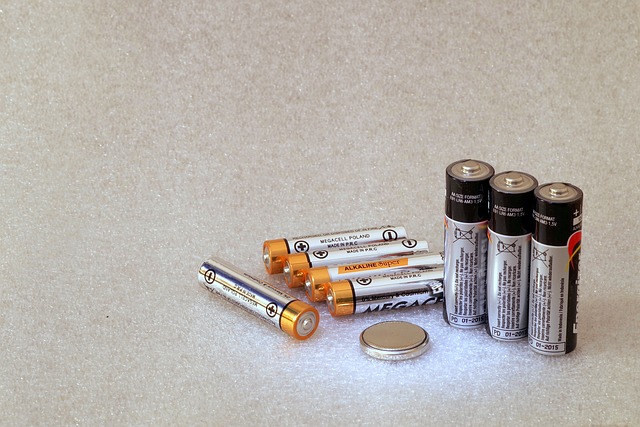Smoke Alarm Sealed Lithium Battery Introduction and Safety
Feb 21, 2020 Pageview:1499
What is a sealed lithium battery?
Sealed Lithium ion batteries are a type of Lithium ion batteries that are sealed within the device it is operating and cannot be replaced. No battery change is required. Most devices using sealed Lithium ion batteries are unauthorized removal safe and have a tamper-proof design. Sealed Lithium ion batteries are mainly used in smoke detectors alarms. They offer up to 10 years of continuous usage. That makes it the most economical and safest choice for homeowners, landlords, and rented properties. According to the 2019 U.S agreement, sealed Lithium ion batteries must meet both the Grade F requirements from BS 5839 Part 6: 2013, and the Grade F2 and F1 installations of 2019.
Are lithium batteries safe in smoke alarms?
Throughout the years, fire departments have advised people to replace the batteries in their smoke alarms periodically. That changed since 2010, fire departments since then have asked the residence to change their smoke detectors with the ones containing the 10-year Lithium ion batteries. It became mandatory in 2019 that all residents having older smoke detectors using the conventional 9-volt batteries to get rid of them and install the new ones with the sealed lithium ion batteries. According to the new bill in the US all apartments and single-family homes are required to have multiple smoke alarms.
The installation of 10-year smoke alarms with “tamper-resistant” batteries, although well-meaning, is equally misguided. Regardless of brand, technology or chemistry, all batteries are subject to the potential risk of premature expiration. The lithium manganese dioxide batteries that currently power these 10-year alarms are no exception. In fact, a cursory review of consumer comments regarding their experiences with these alarms consistently speaks to batteries which only lasted a few months to a few years before failing, far sooner than the purported 10-year claim. The problem of premature expiration might, in fact, be more systemic in nature than the consumer complaints allude to.
One study, conducted for the Center for Disease Control, for a subset of homes that had participated in the “Smoke Alarm Installation and Fire Safety Education Program”, concluded that only 78% of the smoke alarms that still had the lithium batteries installed were functional at the time of evaluation. In another study, it was found that failure rates of alarms increased with age and that after 10 years, approximately 30% of the smoke alarms were inoperable.
These numbers, from two separate studies, are more than a little disconcerting, in that they speak to failure rates that lie between 20-30%. If a specific technology is going to be mandated by the Government, the consumer would expect or rather demand a success rate far closer to 100% especially given the criticality of the application.
In marketing these units as “10-year alarms”, consumers may be unintentionally left with the impression that these units are “maintenance free” and require no attention after initial installation. This is a false and dangerous pretense however, as these units do require periodic testing and dusting to keep them in working order. The consumer will more than likely be less inclined to do this maintenance if they no longer have to replace the conventional 9V battery every 6 months as advised in the long-standing “Change your Clock, Change your Battery” public service campaign. This potential failure to monitor the functionality of the alarm on a monthly basis, as recommended by alarm manufacturers, is a probable result of a false sense of security felt by the consumer, which will ultimately increase the risk borne by them if they no longer feel compelled to carry out such routine inspections.
To further complicate the issue of using sealed batteries in 10-year alarms, when and if the batteries fail, the entire alarm must be replaced, as opposed to just the batteries. In an age of conservation, this is a marked departure from what would be considered a sustainable design. Since these units also sell at a price premium to the more conventional units with replaceable batteries, this places an additional financial burden on the consumer. Fire safety professionals advise that at least 1 alarm be placed on each floor of a house, in addition to an alarm outside of each separate sleeping area. The higher price point commanded by the long-life alarms will undoubtedly have the unintended consequence of discouraging consumers, especially lower-income households, from installing the alarms in all recommended locations, once again increasing their risk and compromising their safety.
While we would ultimately like to see a solution that improves the safety of all consumers and diminishes the chances of fatalities attributed to faulty alarms and exhausted or missing power supplies, we believe that a mandate advocating the use of a 10-year alarm is premature and unwarranted. The battery technology, in its present state, does not support 100% reliance on these devices and it is the consumer, not the Government, that should ultimately have the final say as to which technology gets implemented in their homes lest you diminish their autonomy.
How do you get your smoke detector to stop beeping?
One of the worst and most embarrassing things that can happen is when you cannot stop your smoke detector from beeping. It is true that fire alarms are mandatory in each home, and tampering with them is considered a crime in some places. However, like any device, they can malfunction. When a smoke detector goes haywire, it makes the most irritating sound that has ever existed. There are some easy steps that you can do to stop that irritating sound. That of course provided that there is no actual fire in your residence. These steps are:
Reset the Smoke Detector: treat your smoke detector as you treat any computer. Sometimes it needs to be restarted to function properly. However, resetting a smoke detector can be pretty tricky. That is why we recommend that you look at your device's manual and follow the instructions within.
Change the Batteries: in case, you are using an older generation of smoke detectors that operate on the conventional 9-v batteries. Change these batteries with new ones, as old batteries can trigger the alarm. We recommend that you follow the new 2019 US regulations and change your device with a newer one that operated on the 10-year Lithium ion batteries.
Clear any dust in the device: dust can cause smoke alarms to beep. That is why smoke detectors need to be free of any dust or debris in order to work perfectly.
Leave Message
Hottest Categories
-
Hottest Industry News
-
Latest Industry News












